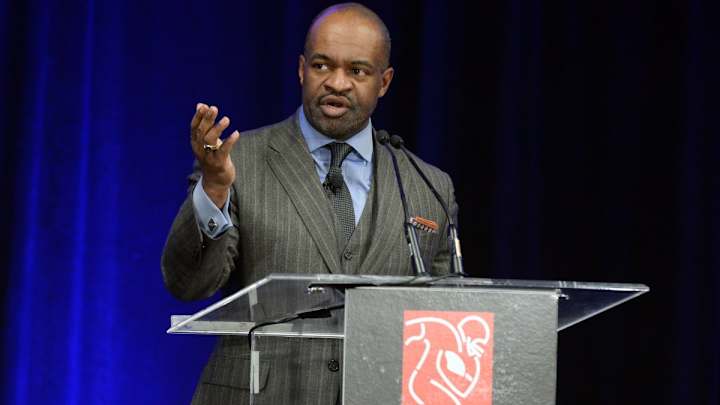Biggest Financial-based Questions the NFL and NFLPA Must Resolve Ahead of Training Camp

NFL training camps are scheduled to begin in less than three weeks. Despite having had the benefit of time to iron out scores of details regarding how to create the safest work environment possible and figure out schedules, there appears to be no consensus regarding how the league and NFLPA plan to operate during the COVID-19 pandemic.
A lot of focus has been on discussing ways to keep training camps safe, but not much has been said of some of the financial ramifications where players are concerned. As I see it, these are some of the biggest questions that need to be determined.
What happens if a player chooses to opt-out of 2020?
The league can make the argument that the player is under contract and thereby obligated to fulfill his contractual duties and that if he doesn’t, he violates his contract. However, a player choosing to opt-out wouldn’t be doing so just because he feels like it.
Some players have family members who are perhaps more vulnerable to having health issues, such as those who live with people who are either undergoing or have undergone cancer treatments and have had their autoimmune systems compromised by chemotherapy.
Therefore if a player decides to skip 2020, what’s the answer? Under normal circumstances, a player who doesn’t report to camp is placed on a “Did Not Report” list (and doesn’t count against the training camp roster). He is also fined for each day of camp he misses.
Would the league pay any player who opts out? Probably not, regardless if that player has guaranteed money.
So if a player opts out, what happens to his contract?
The simple answer would be to toll (freeze) the contract. So for example, if Player A, who has two seasons left on his current contract, chooses to sit out the 2020 season, instead of having one year remaining when he returns in 2021, he would still have two and would be paid in 2021 at the rate he was supposed to have earned in 2020.
Likewise, if a player opts out, I can’t imagine him receiving a year of credit toward benefits or toward free agency. However, I could see the players union pushing for that provision since the pandemic is no one specific person’s fault.
What about contract incentives?
A former colleague of mine always used to say that “Money doesn’t talk; it screams.”
Speaking of money, there are any number of players who have contract incentives that, if deprived of an opportunity to reach, could create angst among the masses.
Could teams, in that instance, use projections based on what the player might have done had there been a 16-game season? Perhaps, but say, for example, the season gets interrupted after eight games, and a player with a rushing touchdown incentive of 10 only has four rushing touchdowns.
Projecting that total out to 16 games would come to 32 touchdowns, probably an unrealistic total for an NFL rusher unless he is the sole focus of the weekly game plan. And not counted in the projection is the injury risk.
From the players' perspective, they could argue that they should be entitled to any contract incentives that fall under the “likely to be earned” umbrella. But will the teams agree? That’s the real big money question.
If a player tests positive for COVID-19, what happens to his roster spot?
To me, this should be an easy question to answer if the league adopts baseball’s “injured list.” Players who test positive for COVID-19 will automatically have to quarantine for at least 14 days. As such, it makes sense to have a 15-day “Illness List,” which would allow teams to move an infected player of the roster, fill the opening, and have the option of bringing him back once he produces a negative COVID-19 test.
In those (hopefully) rare instances in which a player shows symptoms and takes a little longer to recover, perhaps institute a 28-day “Illness List,” which should theoretically allow for most mild cases of COVID to resolve. If a player is not better beyond that period, then consideration might be given to moving the player to a season-ending reserve list.
Keep Up with Giants Country
Sign up to receive our free daily newsletter.
Visit and like us on Facebook.

Patricia Traina has covered the New York Giants for 30+ seasons, and her work has appeared in multiple media outlets, including The Athletic, Forbes, Bleacher Report, and the Sports Illustrated media group. As a credentialed New York Giants press corps member, Patricia has also covered five Super Bowls (three featuring the Giants), the annual NFL draft, and the NFL Scouting Combine. She is the author of The Big 50: The Men and Moments that Made the New York Giants. In addition to her work with New York Giants On SI, Patricia hosts the Locked On Giants podcast. Patricia is also a member of the Pro Football Writers of America and the Football Writers Association of America.
Follow Patricia_Traina